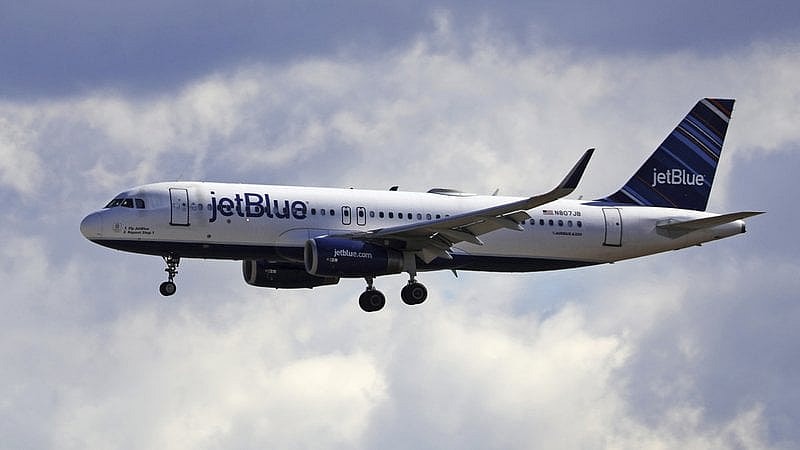The days of airlines blocking seats to make passengers feel safer about flying during the pandemic are coming closer to an end.
JetBlue is the latest to indicate it is rethinking the issue. A spokesman for the carrier said Thursday that JetBlue will reduce the number of seats it blocks after Dec. 1 to accommodate families traveling together over the holidays.
Read More: Flight attendant breaks down during final flight as employees furloughed
Southwest Airlines said last week that it will stop limiting the number of seats it fills after Dec. 1. Delta Air Lines and Alaska Airlines say they will lift caps on seating early next year.
The pandemic and resulting border restrictions caused U.S. air travel to plunge 95% in April. Some airlines promised to block middle seats to create more distance between passengers. Others, notably United Airlines and American Airlines, did not, arguing that ventilation systems and air filters made planes safe without social distancing.

Since then, all the airlines have reported a slow rise in the number of passengers, although U.S. travel is still down 65% from a year ago.
“When no one is flying, and airlines aren’t hitting the sales cap anyway, they can promote blocked middle seats easily,” said Gary Leff, who runs the View from the Wing travel site. “But as travel slowly recovers, there are more and more flights on which it costs airlines real money in lost sales.”
JetBlue spokesman Derek Dombrowski said the airline will keep flights under 70% full through Dec. 1, and will keep some limits through the holidays, “but what that capacity cap will be has yet to be determined.”
Dombrowski said there will be more families and groups traveling over the holidays, so the New York-based airline will offer “a small number of rows” where people traveling together can occupy all the seats.
Earlier this week, JetBlue President Joanna Geraghty said blocking seats “is not something that’s sustainable,” and that as passenger numbers rise and studies show airplane cabins are safe, the airline will raise capacity on flights.

Southwest CEO Gary Kelly made a similar reference to “scientific evidence” that cabins are safe, but he also cited a strong financial incentive to stop blocking middle seats. Kelly said Southwest lost $20 million in revenue during September because of the policy, with the loss seen rising to between $40 million and $60 million in November.
Read More: Single plane passenger gave COVID-19 to 15 others: CDC
A recent study by the Defense Department’s transport command said the risk of spreading the virus that causes COVID-19 on planes is very low if everyone wears face masks. However, the study was not peer-reviewed and did not account for things like people moving around the cabin.
A number of reports suggest that transmission on airlines is rare, although the lack of testing and contact tracing make it impossible to quantify the risk of flying.
Have you subscribed to theGrio’s new podcast “Dear Culture”? Download our newest episodes now!
TheGrio is now on Apple TV, Amazon Fire, and Roku. Download theGrio today!

